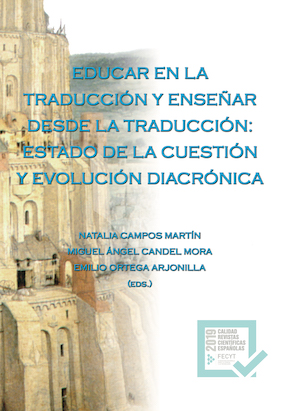Personal data protection: Terminological and legal analysis from translation premises (German-Spanish)
DOI:
https://doi.org/10.7203/qf.24.16309Keywords:
personal data protection, legal translation, General Data Protection Regulation (GDPR), Spanish Data Protection Agency (SDPA), terminology (DE-ES) Abstract
Abstract
The Regulation (EU) 2016/679, which repeals Directive 95/46/EC or General Data Protection Regulation (GDPR), has an impact on the processing of personal data, on the free movement of such data and is an essential law to strengthen individuals’ right in the digital age. This Regulation, applied since May 2018, supposes a legislative and technological adaption in the EU States, and the application of control and security systems in these countries, although there were previous Community provisions and state laws. But just now it acquires new importance and in some cases a change of denomination is necessary. All that implies a vast array of new concepts, which must be understood in order to comply with this Regulation. The main purposes of this work are 1) to analyse the terminology of the Regulation (EU) 2016/679 from two points of view: first of all, we will analyse the legal concepts; secondly, we will study which methods or mechanisms of words composition are used in German; 2) to establish linguistic equivalences of those concepts for the combinatory German-Spanish. As a result, we hope to achieve a glossary of terms, which will be useful for the translation of texts about personal data protection.
 Downloads
Downloads
Downloads
Published
How to Cite
-
Abstract659
-
PDF (Español)433
Issue
Section
License
 Este obra está bajo una licencia de Creative Commons Reconocimiento-NoComercial-SinObraDerivada 4.0 Internacional.
Este obra está bajo una licencia de Creative Commons Reconocimiento-NoComercial-SinObraDerivada 4.0 Internacional.
Authors who publish with this journal agree to the following terms:
- Authors retain copyright and grant the journal right of first publication with the work simultaneously licensed under a Creative Commons Attribution License that allows others to share the work with an acknowledgement of the work's authorship and initial publication in this journal.
- Authors are able to enter into separate, additional contractual arrangements for the non-exclusive distribution of the journal's published version of the work (e.g., post it to an institutional repository or publish it in a book), with an acknowledgement of its initial publication in this journal.
- Authors are permitted and encouraged to post their work online (e.g., in institutional repositories or on their website) prior to and during the submission process, as it can lead to productive exchanges, as well as earlier and greater citation of published work (See The Effect of Open Access).




